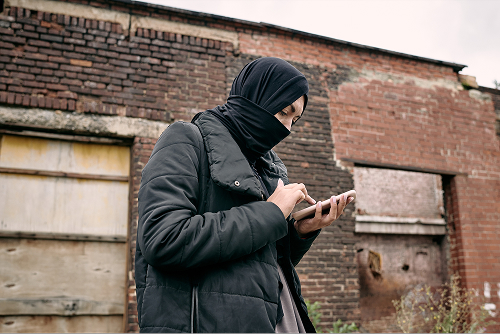SAT-7 PARS keeps the light on for Afghan Christians
Following a 48-hour blackout last week, the internet is back on in Afghanistan. But the blackout was a powerful reminder for SAT-7 of why being a multi-platform media ministry is so important.

The temporary nationwide internet and telecommunications shutdown halted banking, online education, and everyday communication for the Afghan people, bringing daily life to a standstill. For the country’s small number of mostly isolated Christians, it threatened one of their few safe means to access spiritual support.
“We are relieved that the internet has been restored in Afghanistan following the 48-hour blackout,” said Panayiotis Keenan, SAT-7 PARS Executive Director. “It is a lifeline for the Afghan people and a crucial means for us at SAT-7 PARS to connect with and support isolated Christians in the country.”
In Afghanistan, believers cannot gather openly. But SAT-7 PARS brings worship, teaching and fellowship straight into homes through satellite TV and digital media, creating a community of believers who can grow in faith even when physical gathering is impossible. While digital platforms enable the creation of safe online church spaces and one-to-one care, satellite TV remains beyond local control – a lifeline when other routes are blocked.
“This temporary shutdown of the internet underscores the importance for us of being a multi-platform ministry, so that we have the flexibility to switch our content across platforms when needed,” Panayiotis added. “Please pray with us that the internet will remain available in Afghanistan and that more and more people there will find our faith-filled content through both digital and satellite services.”

SUPPORTING VIEWERS
SAT-7 PARS has long invested in broadcasting Christian programming into Afghanistan in Dari, the language many Afghans use at home and understand best. And when the internet was down temporarily, the satellite signal continued beaming into the country, offering spiritual encouragement and practical support. Programmes such as Sun of Hope – an educational series for children and others who have no access to school – continued to air.
One parent wrote: “I have three children. Every day when they have time, they sit in front of the TV and watch Sun of Hope. They are learning Dari from this programme, their speaking is now better than before. We don’t have a proper school in our town; this programme is like a school for our children. Sometimes when I sit beside them, I learn something. I am very grateful to SAT-7 PARS for this programme. God bless everyone who works hard. Our prayers are with you.”
Messages from Afghan viewers highlight the different ways and means that SAT-7 PARS supports people there. One young woman, Fatemeh, contacted the Viewer Support team via WhatsApp after seeing a SAT-7 PARS TV programme.
“Under the Taliban there are many restrictions,” she explained. “I wanted to learn more about Christianity but faced many difficulties. Resources and opportunities are very limited. That’s why I am reaching out to you for help.”
Like many others in Afghanistan, Fatemeh’s journey of faith depended on a combination of satellite TV programmes, private messages, and social media fellowship. She was not always able to join SAT-7 PARS’ live teaching sessions on Zoom because of an unstable internet connection, so the Viewer Support team sent Fatemeh recordings and reading materials. And, step by step, she began to grow in faith – supported by SAT-7’s quiet, personal encouragement.
When internet connectivity returned to Afghanistan last week, relief swept the nation. For ordinary Afghans it meant access again to essential services and communication with loved ones. For Christians it meant they could reconnect with their wider Church family for fellowship, discipleship and support.
